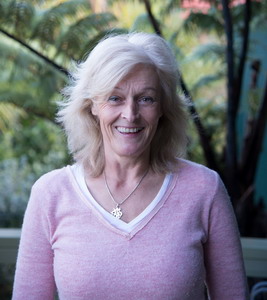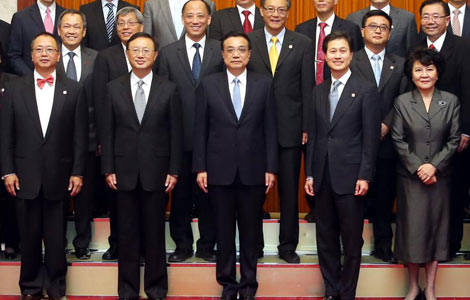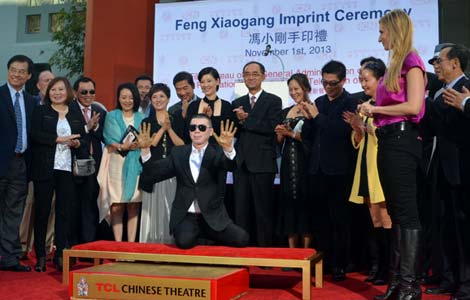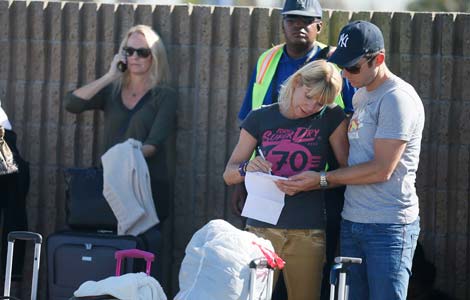Culture of healing
Updated: 2013-11-03 08:27
By Tracie Barrett (China Daily)
|
||||||||
 |
|
Cameron Tukupua combines New Zealand's indigenous Maori culture, traditional Chinese medicine and yogic philosophy in a mindfulness and meditation retreat. [Photo provided to China Daily] |
New Zealander Cameron Tukupua has been a practitioner of traditional Chinese medicine for 30 years and a frequent visitor to China since 2005. She speaks to Tracie Barrett about how TCM can help people deal with the increasing pressures of modern life.
Cameron Tukupua calls herself a "seeker of happiness" and believes that is our natural state.
"Children are naturally joyful, light and happy," she says. "They laugh easily and their emotions flow freely. So what happens? How do we lose that?"
The vibrant 52-year-old with a ready smile answers her own question, saying that a child gets hurt for the first time and becomes vulnerable, and that vulnerability creates a disconnect from the natural state of ease, leading to disease - "a lack of ease, a separation from that unity".
Tukupua, whose practice combines New Zealand's indigenous Maori culture, traditional Chinese medicine and yogic philosophy, was in Beijing in September to lead a mindfulness and meditation retreat.
During her stay, she also completed a book, Opening Up: A Conversation about How to be Real, which she says offers everyday language for people's emotional states and what those states are signaling.
Having founded a government-registered acupuncture college in her home country and been involved with traditional Chinese medicine for 30 years, she sees her practice as encouraging patients to reconnect with their inner spirits.
"So many people are having, or have had, traumas and experiences and events in life that they haven't really recovered from so then they continue to wobble their way through life," she says. "But more and more, we're seeing people deal with challenging times by getting numb - taking medicines, drinking alcohol, covering up, pretending it's not happening. There's a lot of masking going on."
She believes society is "normalizing" mental illness but says how we are living is "far from normal".
"Thirty years ago, stress was a term that described the tension between steel beams. It was an engineering term. Now everybody says. 'Oh, you're stressed', like that kind of tension is normal."
She sees stress as apparent in China, with its dramatic economic rise and significant increase in the standard of living.
"I see that there are a lot of challenges for young people who are absolutely in the new world while their elders are in the old world." She believes "a revival of their own wisdom framework" can help the two generations connect.
Although Tukapua says she is an expert, "with specialized knowledge that allows me to help people who are really seriously troubled", she says most people who need help need very simple things, which "everyday" people can offer.
One such person is Olly Clay, who "reluctantly" accompanied his girlfriend to a workshop with Tukapua in April.
"I didn't really know what to expect because I had been dragged to it by someone else," he says. "I started chatting with Cameron and realized she was saying some things that were resonating with me. But I don't think I was really sold on anything, but I was really curious on where this thing might lead."
Describing himself at that time as "trying to find some direction in my life", he surprised his girlfriend by suggesting they then join a five-day retreat with Tukapua.
"It showed me a different way of looking at things," he says.
Clay and his girlfriend also attended Tukapua's course in Beijing in September. He says he has now made yoga and meditation part of his life. What he most likes about Tukapua's teaching, he says, is that she is very approachable and "not at all preachy".
One important thing Tukapua has to say is that all of us are healers for one another. "It's alarming to me that people now don't feel that they have the resources to take care of their own," she says.
"You don't have to do anything. You don't have to say much. You don't have to know any fancy theories - you just have to be there for people. Most people today are too busy for that."
Tukapua is deeply connected to New Zealand's indigenous Maori culture through her marriage. She says she sees many similarities between Maori and Chinese cultures.
"There's a recognition that the group harmony is important for the individual to be in a place of harmony. The reverence for elders is shared with Maori culture - the appreciation of history and where we've come from and how that informs who we are today. And the recognition of spirit - in Chinese culture, there is a strong awareness of spirit. But, I think, in the last 50 years, the language for that has been lost."
That is one of the reasons she comes to China regularly, she says, to help people reconnect to nature and their inner beings and give them the language to express their awareness.
"I used to feel embarrassed and shy about coming here and teaching Chinese philosophy," she says. "And yet now I realize that this is my offering back to the philosophy that has nourished me for 30 years."
Contact the writer at sundayed@chinadaily.com.cn.

 Premier Li meets prominent Chinese Americans
Premier Li meets prominent Chinese Americans
 Beard World Championship 2013
Beard World Championship 2013
 Egypt to lift curfew on November 14
Egypt to lift curfew on November 14
 Hundreds in US protest against ABC's offensive skit
Hundreds in US protest against ABC's offensive skit
 Movie director Feng leaves his marks at Hollywood ceremony
Movie director Feng leaves his marks at Hollywood ceremony
 Baidu's Qunar travel site makes strong public opening
Baidu's Qunar travel site makes strong public opening
 TSA agent killed, six hurt in Los Angeles airport shooting
TSA agent killed, six hurt in Los Angeles airport shooting Li makes plea on reform
Li makes plea on reform
Most Viewed
Editor's Picks

|

|

|

|

|

|
Today's Top News
LA airport shooting suspect charged with murder
Obama spells out budget priorities for Congress
Premier Li meets prominent Chinese Americans
US accused of killing Taliban leader
Xi: China confident of growth
Snowden ready to help probe spying
Chinese experts to join Syria weapons mission
Qunar travel site makes strong public opening
US Weekly

|

|






